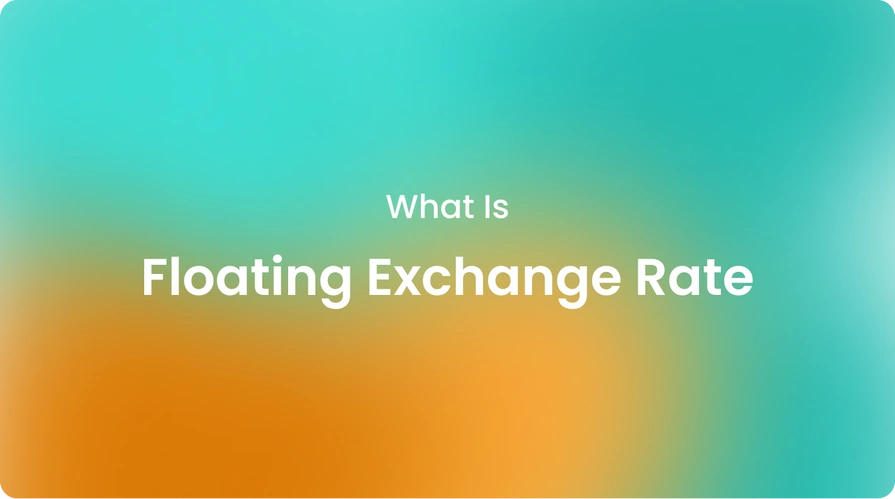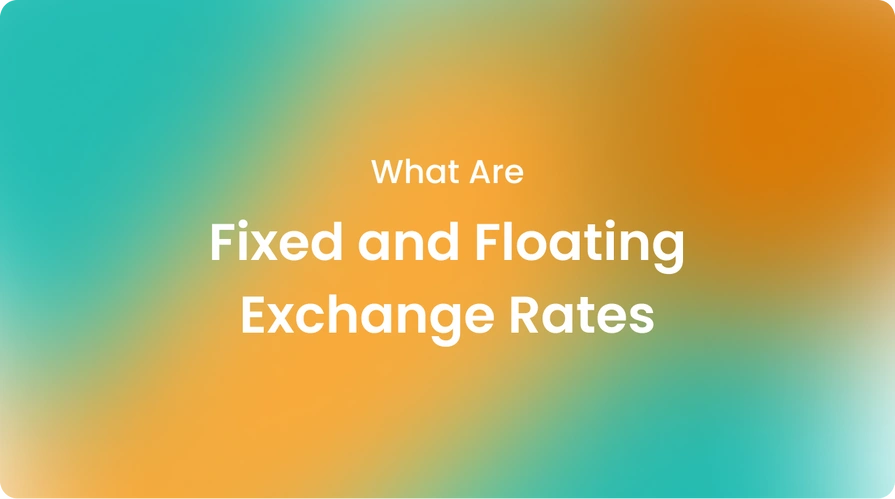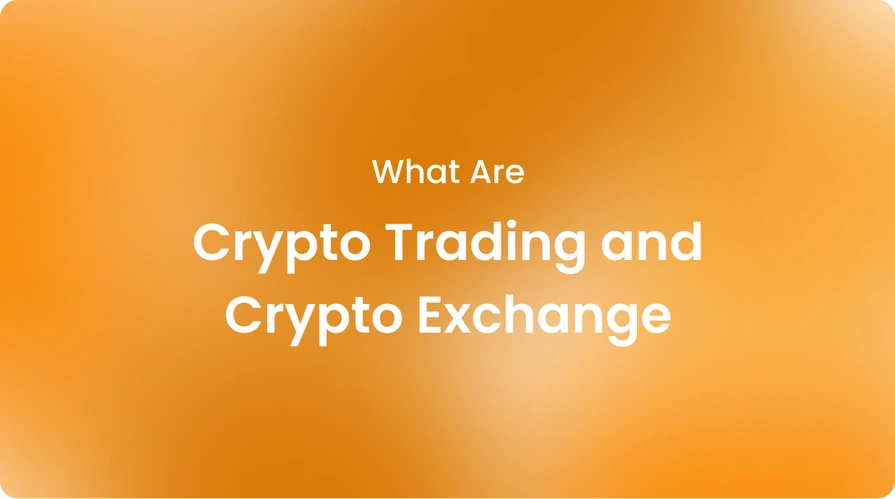|knowledgehub, crypto
What Is a Floating Exchange Rate?

Have you ever wondered what determines currency values and how a floating exchange rate works? Join us in this article as we explore floating exchange rates, a system where market forces dictate currency prices between countries.
We'll look at how floating rates work, their advantages and drawbacks, real-world floating exchange rate examples, and how they differ from fixed rates. By the end, you'll have a solid grasp of this important aspect of international economics.
Under a floating exchange rate regime, a currency freely fluctuates against other currencies, also known as a fluctuating or flexible exchange rate.
Under this system, central banks do not attempt to maintain a fixed exchange rate through foreign exchange intervention in the markets. Instead, supply and demand from international trade and financial flows determine a currency's price.
What is a floating exchange rate system?
Private sector transactions in the forex markets entirely set exchange rates in a pure floating exchange rate system. This means currency values rise and fall based on worldwide economic factors that influence supply and demand for that currency.
These economic factors are interest rate differentials, inflation rates, current account balances, and economic growth prospects between trading partners. A central authority does not set a predetermined target value.
How does a floating exchange rate work?
Under floating exchange rates, currency valuations self-adjust and find their natural equilibrium level without government interference. If demand for a country's exports rises, for example, there will be higher demand for its currency on the forex markets.
This bidding up of demand causes the currency's exchange value to appreciate versus other currencies until demand and supply equalize.
Alternatively, changes in economic conditions can induce capital outflows and weaker demand for a currency, resulting in depreciation. This flexible, market-driven process allows exchange rates to act as shock absorbers for economies.
What are the advantages and disadvantages of floating exchange rates?
As with many economic policies, floating rates involve trade-offs. On the pro side, they provide monetary policy independence, allow economies to absorb external shocks, and reflect changing competitiveness between countries. However, fluctuating values also introduce uncertainty for traders and investors.
Let's examine these factors in more detail:
Advantages of floating exchange rates
Monetary autonomy
Central banks can set interest rates to suit domestic stability without regard for exchange rates. This gives more control over inflation.
Shock absorber
Fluctuating exchange rates help offset impacts from events like foreign trade deficits, supply disruptions, or monetary policy shifts in other nations.
Signals of economic strengths
Floating currency movements provide up-to-date information on a country's economic performance versus peers based on demand.
Disadvantages of floating exchange rates
Exchange rate volatility
Frequent, sometimes large swings in currency values make business planning and pricing uncertain.
Speculative capital flows
Large currency bets by investors can amplify short-term exchange rate fluctuations unrelated to economic fundamentals.
Loss of competitive edge
Sharp currency appreciation can erode export competitiveness and import competing industries.
What happens when exchange rates are freely floating?
Some economies, like the USA, Canada, UK, and Australia, essentially have free floating exchange rates with very limited central bank intervention.
This results in higher volatility as currency values ebb and flow purely according to market forces. Exchange rates fluctuate more substantially day-to-day and in response to new information.
Over long periods, empirical studies suggest free floaters correlate well with economic productivity and inflation differentials between trading partners. However, short-term gyrations may at times seem disconnected from macroeconomic fundamentals.
What are some real-world examples of free floating exchange rates?
The US dollar, Canadian dollar, British pound sterling, and Australian dollar could be characterized as free floating exchange rates against other major currencies in recent decades. The euro also floats independently without any pre-determined exchange rate path, as does the New Zealand dollar.
Market sentiment also determines the fluctuations of emerging market currencies such as the Mexican peso, Russian ruble, Brazilian real, and Indian rupee. In contrast, some small economies, like in East Africa, adopt US dollar pegging for exchange rate stability.
What is the difference between a fixed and a floating exchange rate?
A key distinction is that foreign central banks actively manage a fixed exchange rate system—committing to buy or sell unlimited amounts of their currency at an announced rate to maintain stability. Examples are currency boards in dollarized economies like Hong Kong.
By contrast, floating exchange rates experience two-way flexibility without any targeted value. Central banks in floaters passively intervene only to reduce disorderly movements that could damage financial or economic stability.
Which is better, a fixed or floating exchange rate?
There is no consensus—it depends on a country's economic priorities and conditions. The key distinction between a fixed vs floating exchange rate system is which entity determines the value of the currency. Floating rates have the advantages of monetary freedom and the absorption of external shocks.
But some emerging markets that depend heavily on capital inflows may prefer fixing rates to attract investments, such as crypto investments. Pegs provide certainty, while floats can magnify instability.
Most experts agree that larger, diversified economies usually benefit more from floating, while smaller, developing, or financially integrated nations tend to adopt pegs. Ultimately, the decision involves finding a balance between maintaining a stable exchange rate and having flexibility in monetary policy.
The bottom line
Floating exchange rate systems give markets the freedom to set currency values without the obligation to maintain a predetermined rate. This two-way flexibility allows the absorption of external disturbances and incentives for competitiveness, especially in cryptocurrencies.
Leading economies have found success permitting currencies to float freely. However, flexibility also brings increased exchange rate volatility, which introduces uncertainties.
The balance of advantages depends on specific crypto trading flows and economic conditions. Floating regimes provide useful exchange rate adjustment and signaling for many nations to pursue macroeconomic stability.
Cryptobunq is a one-stop-shop crypto services provider that offers seamless crypto transactions and management for both personal and business users.
With Cryptobunq, you can easily leverage cryptocurrencies, whether at fixed or floating exchange rates, and the efficiency of the blockchain. Users can explore the multiple services on offer by Cryptobunq to begin exploring the benefits of crypto in a secure and regulated environment.
These services include batch payments, node as a service, tokenization, checkout and invoicing, custody and wallet, and an exchange API. If you want to dive into the world of crypto and blockchain ecosystems, CBQ is here for you. Explore our case studies and contact us for expert solutions!













